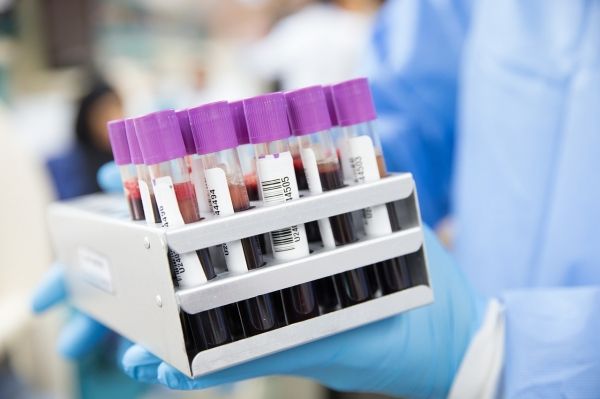In a study involving thousands of participants, a new blood test detected more than 50 types of cancer as well as their location within the body with a high degree of accuracy, according to an international team of researchers led by Dana-Farber Cancer Institute and the Mayo Clinic.
The results, published online today by the Annals of Oncology, indicate that the test – which identified some particularly dangerous cancers that lack standard approaches to screening – can play a key role in early detection of cancer. Early detection can often be critical to successful treatment.
Developed by GRAIL, Inc., of Menlo Park, Calif., the test uses next-generation sequencing to analyze the arrangement of chemical units called methyl groups on the DNA of cancer cells. Adhering to specific sections of DNA, methyl groups help control whether genes are active or inactive. In cancer cells, the placement of methyl groups, or methylation pattern, is often markedly different from that of normal cells – to the extent that abnormal methylation patterns are even more characteristic of cancer cells than genetic mutations are. When tumor cells die, their DNA, with methyl groups firmly attached, empties into the blood, where it can be analyzed by the new test.
“Our previous work indicated that methylation-based tests outperform traditional DNA-sequencing approaches to detecting multiple forms of cancer in blood samples,” said Dana-Farber’s Geoffrey Oxnard, MD, co-lead author of the study with Minetta Liu, MD, of the Mayo Clinic. “The results of this study suggest that such assays could be a feasible way of screening people for a wide variety of cancers.”
Read more at Dana-Farber Cancer Institute
Photo Credit: AhmadArdity via Pixabay


